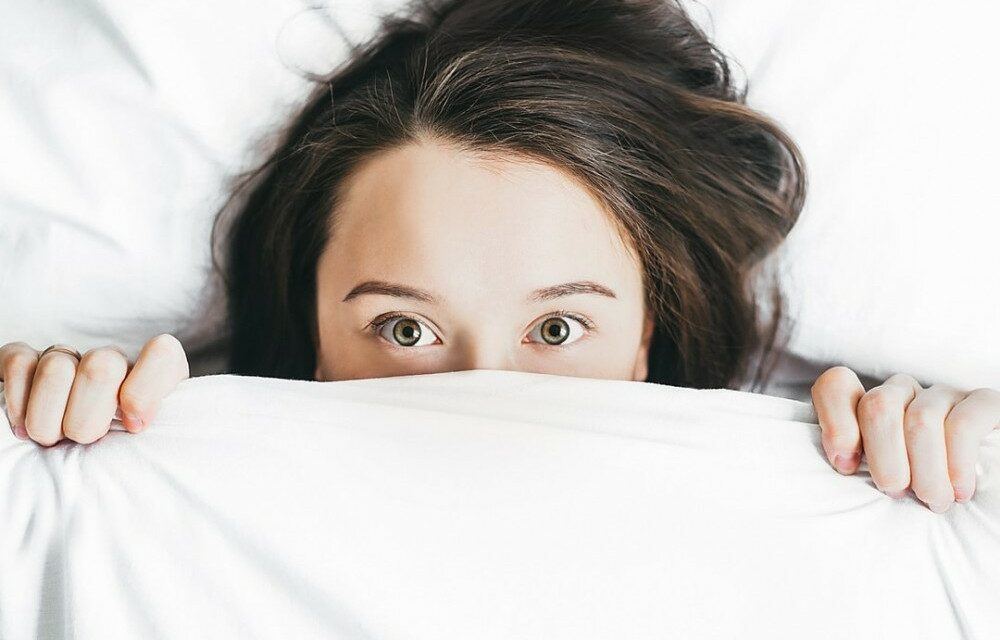Do you find yourself struggling to get to sleep or stay asleep through the night? You are not alone. Research studies have discovered that up to half of the world population suffer from sleep disorders in some point of their life. Majority of those people, in fact, three-quarters of those struggling to sleep at night able to find relief from the sleep disorder.
For the regular everyday person without underlying medical conditions, it can be simple things that are stopping them from getting to sleep without realizing it. Your body needs the right type of environment to be able to get the right amount of restful sleep.
In general, the recommended amount of sleep is 8 hours for a healthy individual. Some people work better on 7 and some on 9. Though if you aren’t getting the right kind of sleep, you will still be tired even if you are getting the right amount of sleep overall.
Stages of Sleep
There are three different stages of sleep: light, deep, and rapid eye movement (REM) sleep.
REM sleep is important for the mind; this is where the mind is active, and all the dreams happen while the body rests.
But, the most important overall is the deep sleep. Your body needs 1.5-2 hours of deep sleep every night; this is where everything, including your heart and breathing, slows down in order to let the body repair itself. So, without being able to access the deep sleep, your body will struggle to heal, and you will find yourself quite unwell.
How to Monitor Sleep Quality?
There are a number of apps and fitness bands that are able to monitor your sleeping patterns. They will be able to tell you how much of each type of sleep you are getting and can give you an idea of what and which kind of sleep you need more of.
One of the main problems people find is getting to sleep in the first place. While there are some people with chronic insomnia, most people just need to make some changes to their lifestyle. There are approximately ten different reasons that can stop you from getting that restful sleep. This list is not exclusive, and there are other things that can affect sleep; however, these tend to be the most common reasons.
Reasons Why You Can’t Sleep at Night
Hunger
If you haven’t eaten enough, your stomach can keep you awake by continuing to grumble at you. However, having too much to eat just before bed may also affect you. It’s best to have a regular-sized meal a few hours before bedtime.
Booze
While many drink alcohol to relax, and it can initially make you tired, there are several things the alcohol also does that affects your sleep.
Alcohol acts as a diuretic and makes you need to go to the loo more often. Not only that, but it can also make you dehydrated, and this will affect the type of sleep you are getting.
Your body won’t be able to get into the deep sleep that it requires, and you will eventually wake up still feeling tired.
Remember, if you feel tired most of the time, it’s best to be aware of Signs of Chronic Fatigue Syndrome
and seek help if you think the tiredness is part of a bigger problem.
Screen glow
Today’s society has us all relying so much on technology, mostly with glowing screens. They are much more accessible than ever, and most people sleep with at least one kind of device nearby. The light produced from these devices (e.g. smartphones and tablets) even though it is artificial will prevent your brain from producing Melatonin which your body needs to sleep.
Mind won’t turn off
There is always something happening new events, jobs and deadlines always something looming tomorrow in a world where the pace is every increasing and everyone is bustling to keep up there is a high number of people whose brains go into overdrive as soon as their heads hit the pillow. It can be difficult to clear these thoughts and just as difficult in this state to have a night that will reach any deep sleep.
If you have a history of Panic Attack or Anxiety Attacks, not being able to stop thinking or worrying at night could be a sign of a bigger problem.
Snoring
Whether it is you or your partner snoring this will affect how much sleep you are getting.
Do you know people with a partner that snores lose on average 1 hour of sleep every night? Not to mention the snorer will be continually getting woken up to be told to roll over.
There are many different causes to snoring, and if you or your partner are finding that it is affecting your sleep in the long term, then it is best to see a doctor, in case there is an underlying cause for the snoring, for example, sleep apnea.
Clock watching
So often we will wake up in the middle of the night, and we will see the time, and our brain will automatically start figuring out how much time we have left to sleep and how much that isn’t going to be enough to get us through the day. And then you get stuck in an awful cycle and might wake up a few more times throughout the night and do the same thing again and again.
The easiest way to avoid this vicious cycle of ‘worrying’ is to remove any clocks from the room and avoid checking your mobile for the time when you do wake up.
Uncomfortable bed
Can you believe that not comforting enough bed is a significant cause of not being able to sleep well? If what you are sleeping on is not comfortable, then you are not going to be able to get the required sleep.
Check your pillow and sheets as well as your mattress, if these are uncomfortable because rough sleeping can affect your sleep as well.
Slept in
If you had a big sleep in or didn’t get up until really late or similarly if you napped through the day your body won’t be able to get itself to sleep at a regular time at night because it has already had extra hours sleep throughout the day.
In this case, your body will feel like it has already had some of the hours needed, even if you are still feeling exhausted.
Messy room
It may not seem like a cause to your inability to get to sleep, but the clutter in your bedroom can be the cause of some anxiety, which will inhibit you from sleeping.
That covers some of the most common reasons found to stop people from getting to sleep or staying asleep. There may be other everyday reasons that affect you or even underlying medical conditions that can cause insomnia as well.
The Best Things to Do When You Can’t Sleep
If you struggle to sleep due to one of the above reasons, based on the cause, there are some things you can do to ensure a restful night sleep.
- Avoid big meals just before bed but also avoid eating too little. Your last meal should come in 2-3 hours before your bedtime. For example, have your dinner before 7 pm if you wish to sleep at 9 pm.
- Don’t drink more than two standard glasses of alcohol before bed. It’s a myth if you think the alcohol will help you to sleep.
- Don’t drink caffeine at least from 6 hours before bedtime.
- Ensure your room is a pleasant place to sleep, tidy and clam.
- Make sure your bedding is comfortable.
- Turn off all screens (including your mobile phone) and make sure the room is as dark as can be.
- Take some time out to relax, perhaps even meditate, before trying to fall in sleep.
- Set a routine and try to get to bed at the same time each night.
If the above vital fundamentals are not working, you may try the below with a bit of help from technology. Remember, you should not break the above rules regardless.
Smartphone Apps to Help Sleeping
With the many advances to technology these days, several smartphone apps can assist you with your sleeping issue. Some can walk you through guided meditations, some apps will talk you through breathing exercises or mindfulness activities, and some might just have a relaxing soundtrack for you. There are ones that will play white noise or nature sounds that will help you drift off peacefully.
Herbal Sleep Remedies
Other options you may also find useful are Melatonin sprays or a diffuser with an essential oil blend. There is a number such products can assist you with sleep the most popular are lavender and chamomile but marjoram, sage and Valerian are also known to assist.
Many companies offer a sleep blend with a few oils blended together.
You can also finish your night off with chamomile or lavender tea. Again, quite often, there is a blend you can use.
These recommendations may not work for everyone as each person is different, but a vast majority of people who try teas and oils will find them relaxing, but they should never be used instead of or against doctors advise.
Health Conditions Cause Insomnia and Sleep Disturbance
There are a few conditions that can cause insomnia and sleep disturbance. Depression and anxiety are two of the main insomnia causing conditions. Other conditions that can affect sleep are:
- Nasal/ sinus infections
- Chronic pain (Here is the link to my popular article Natural Remedies for Chronic Pain)
- Arthritis
- Asthma
- Sleep apnea (Remember, Sleep Apnea Can Lead to High Blood Pressure)
- Hormonal (or Endocrine) issues
- Neurological conditions
When to Seek Help When You Can’t Sleep
Most people find following the recommendations and using meditation and oils will work for them. Try different things, and you should find the one that works for you.
While the above strategies and remedies will work for general sleeping problems if you find your sleep is not improving or you are almost a week with little to no sleep already, go and see your doctor as it could be due to a number of sleep disorders, which will need to be diagnosed and treated by a professional.
Remember, lack of sleep can cause other health issued like Major Depression and Psychosis. These are severe Psychiatric Medical Conditions.
Not only that, with lack of sleep it can become dangerous when driving and operating machinery. So, it is imperative to seek help timely when you identify there is a problem.
Therefore, if you find that changing your lifestyle habits does not affect your ability to get to sleep, and you have not been diagnosed with a condition that could be causing it, then your best option is to discuss with your doctor. Even you should consider talking to a specialist to seek the second opinion to see if there is something underlying that once treated, may improve your ability to get to sleep.
Be sure to follow your doctor’s advice and referrals. Specialists who can help are General Physicians, Psychiatrists and Psychologists.
I would love to hear your experience with overcoming sleep difficulties and insomnia, so leave a note below. Especially, what did help you? And what did not?






